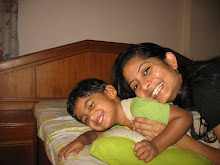Review of A thousand splendid suns by Khaled Hosseini
'There is a way to be good again' wrote Khaled Hosseini, the resounding refrain that gently suggests redemption, in the Kite Runner. Redemption, he has no need of, as thousands of readers will agree, but he sure has lived up to that statement with his second novel 'A Thousand Splendid Suns'. Is it good? Yes. Is it splendid? Most definitely. It could've been a story about two struggling housewives during a war. And it is. But Hosseini has teased out the various layers that carefully make the housewives and their struggle so finely, that you cannot but feel that this is a story of valiant heroism, silent matyrdom and the infinite love the human spirit is capable of. Not that they require it, but the backdrop of the war only make them starker.
A Thousand Splendid Suns is the story of two Afghani women divided only by age and upbringing. Laila, a teenager in love with her childhood friend Tariq, loses both parents to a stray rocket launched by the Mujahideen, and loses her love Tariq when he emigrates with his family to Pakistan to escape the war, and later to a lie. Left with a broken body, and a surprisingly resilient child in her womb, she becomes the third wife of her aging neighbour, Rasheed. Whom she shares with Mariam, his second wife who failed to give him children. Mariam is the illegitimate child of a rich businessman from the far away town Herat and had been given away to Rasheed years ago to erase all signs of his indiscretions. While they share the same neighbourhood in Kabul for years, indifferent to each others' existence, war makes them share a husband, a home and children, binding them together in a relationship that is nothing short of filial. What follows is struggle for survival not just in a war ridden city, but in a home that mirrors the terror and violence outside. A failed escape, two children and one lost child later, Laila's love, Tariq comes back in person to banish the lie about his death. When Rasheed finds out, war breaks out in full fury. And as in any war, there is death, sacrifice and guilt. The aftermath, of course, consists of reform, peace and a happy ending. But by the time we get to that, more than a tear is shed. And rightly so.
Hosseini makes us see an Afghanistan that until now has only been an item of general knowledge tucked away on the third page. He introduces us to Afghanis like they could be our kith and kin. He reveals to us their womens' subhuman existence the way no saas-bahu serial can claim to. Most of all, he makes us believe how fortunate we are to have the freedom we do, to walk the streets in the clothes we wear (though if you live in Karnataka, that might not last long), to live the lives we live. And what is most splendid is the carelessly masterful way in which he does it.
A somewhat rare phenomenon in which a male author writes about female protagonists, the only other who comes to mind now is Milan Kundera, Hosseini has managed to capture with great accuracy the infamously complicated female mind and its surprisingly simple workings. Perhaps the early morning quiet during which the novel was written helped him, perhaps his profession as a doctor did it, or maybe he is just one of those intuitively talented writers. My humble guess is the third. The classic narrative that goes from point A to point B in a ramrod straight line with no unnecessary detours, helps tell the story in a lucid, simple, and because of that, reminiscent manner. This is a style he has used in the Kite Runner, and yes, it works a second time round too.
His articulation is impeccable, language devoid of erudite ramification, and is pretty much free from cliche. Every sentence in the novel leads the story forward like a breath that you never really notice but nevertheless sustains precious life. But most of all, you marvel at his easy, spontaneous storytelling, that keeps you turning page after page ignoring pangs of hunger. But what is more wondrous is the pangs of separation you feel from the book even as you near its end.
If you haven't read A Thousand Splendid Suns yet, all I can say is I envy you the pleasure of reading it for the first time.


0 Comments:
Post a Comment
<< Home